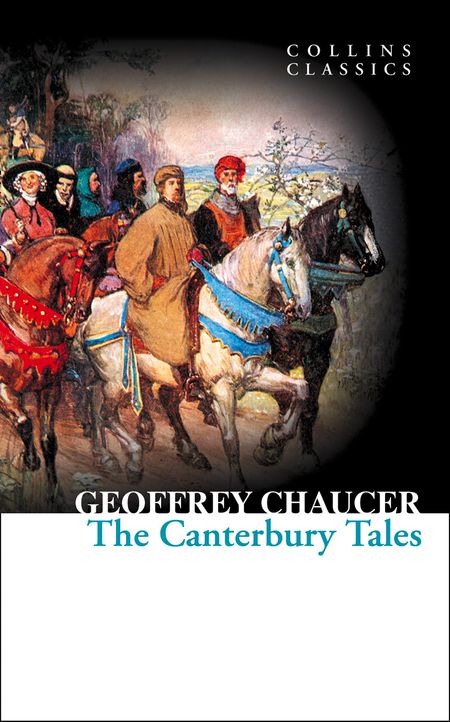Geoffrey Chaucer was born in the reign of Edward III, shortly after the beginning of the Hundred Years’ War between England and France. It was an exciting period, the last flowering of the age of chivalry; the days of the Black Prince, when the English came within an ace of conquering the whole of France with the victories of Crecy and Poitiers.
Chaucer, though a poet, was by no means a recluse; he had a varied and distinguished career as a courtier, diplomat, and administrator. He was probably born about 1343 (the exact date is not known) and came of a prosperous middle-class family that had been in the wine trade for several generations. The family had court connections, and Chaucer began his career as a page in the household of the Countess of Ulster, wife of Prince Lionel, a son of Edward III.
Chaucer took part in at least two military campaigns, and was once taken prisoner by the French near Reims (Edward III ransomed him for £16 – a sum probably worth thousands in present-day money). John of Gaunt (Shakespeare’s ‘time-honour’d Lancaster’) seems to have been his chief patron. In the 1370s Chaucer went abroad several times on a series of diplomatic missions, to Flanders and France, and twice to Italy, where he visited Florence and may conceivably have met Petrach. These Italian visits were crucial, for quite apart from his becoming acquainted with the work of Dante, Petrach, and Boccaccio, it was the impact on Chaucer of the Italy of the Quattrocento, of cities like Milan, Florence, and Pisa which were then being built, that probably helped to turn him into the great artist that he afterwards became. It must be remembered that for his age Chaucer was a very learned man – he read and spoke French and Italian fluently as well as Latin, was an expert in astrology and astronomy, and had more than a smattering of history, theology, medicine, law, and even alchemy; he owned (if we are to believe his claim in The Legend of Good Women) a library of sixty books, which was more than many university colleges possessed in those days. By 1374 he was a man of considerable standing and substance, for in that year he was appointed to the important post of Controller of Customs and Subsidies on Wools, Skins, and Hides in the Port of London (wool customs were a main source of the king’s revenue). This post he held until 1386, when he became a Justice of the Peace and Knight of the Shire (i.e. member of parliament) for Kent. It was about this time that he began to write the Canterbury Tales. But his public career was by no means over; in 1389 he was appointed Clerk of the King’s Works, in charge of the upkeep and repair of eight of the royal residences, including Westminster Palace, the Tower, and St. George’s Chapel at Windsor. Two years later this appointment was exchanged for the less onerous one of Deputy Forester of the royal forest of North Peterton in Somerset. According to the date on the tomb that was erected to him in Westminster Abbey in the 15th-century, he died on 25 October 1400.
